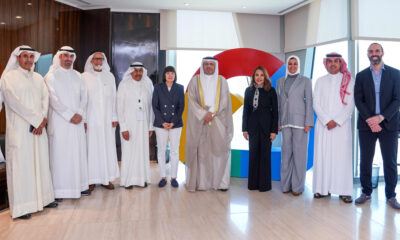News
Dubai Police Use Futuristic Technology To Read Murder Suspect’s Mind

A recently solved murder case in Dubai shows that science fiction movies have become a reality. Instead of traditional methods, the Dubai Police solved the case using a new technology developed by Brainwave Science, Inc, which makes it possible to literary read the minds of crime suspects.
This technology is called iCognative, but those familiar with it often call it “memory print” or “brain fingerprinting.” The science behind it is fairly easy to understand. When the human brain recognizes a known object, image, or piece of information, it involuntarily emits the so-called P300 wave.
The P300 wave is an event-related brain potential that can be measured using electroencephalography (EEG), and that’s exactly what iCognative does.
“We used the technology in a murder at a warehouse. Experts showed [the workers] pictures related to the crime, which only the person who committed it would know,” said Lt Colonel Mohammad Al Hammadi, Director of Criminology for Dubai Police. “After the session, the [brain mapping] device helped identify the main suspect who then admitted to having committed the murder.”
Lt Colonel Mohammad Al Hammadi has confirmed that the Dubai Police will continue using iCognative when solving future crimes. Other law enforcement agencies around the globe are also trialing the technology, while others, such as India’s police force, have been using it for years.
Also Read: Hyperloop Video Provides A Peek At The Future Of Transportation
The technique for the detection of concealed information with event-related brain potentials was pioneered by American neuroscientist Lawrence A. Farwell, who described its potential for lie detection in his 2012 research paper.
If you would like to see a real convicted murderer, Steven Avery, be brain fingerprinted by Lawrence A. Farwell, you can watch the second season of Netflix’s “Making of a Murderer“. If this isn’t good use of science fiction, then I don’t know what is.
News
Mamo Completes $3.4M Funding Round To Enhance Fintech Services
The startup will use the influx of cash to expand into Saudi Arabia and across the wider GCC while improving its product offering.

UAE-based fintech Mamo has announced the completion of a $3.4 million funding round that will help the startup extend its market presence and improve its product offering. Investors included 4DX Ventures, the Dubai Future District Fund and Cyfr Capital.
Mamo’s platform offers “payment collection, corporate cards and expense management” to help small and medium-sized businesses consolidate and streamline their operations. With the latest influx of capital, Mamo will further develop its comprehensive suite of services and begin testing its product lines in Saudi Arabia, further extending its footprint across the GCC.
Imad Gharazeddine, co-founder and CEO of Mamo, stated: “We’ve been in the market for a while now and are incredibly proud of what our team has achieved. The holistic and expansive nature of our product offering has helped us continue to grow sustainably. This additional funding will allow us to reach our medium-term goals even faster. The support from new and existing investors is a testament to our strong expertise and the ability to deliver on our customer promise”.
Daniel Marlo, General Partner of lead investor 4DX Ventures, added: “We have immense trust in Imad’s vision, leadership and Mamo’s innovative approach to provide a user-friendly and comprehensive financial solution for SMEs that makes financial management more accessible and efficient. We are proud to partner with them and support their mission”.
Also Read: A Guide To Digital Payment Methods In The Middle East
Amer Fatayer, Managing Director of Dubai Future District Fund’s investment team, also commented: “Mamo’s localized product lines serve as an infrastructure for SME payments and spend management in UAE, a segment that is underserved by the country’s current banking infrastructure. The team has taken a product-first approach to consolidating SMEs’ financial journeys and building a fintech solution deeply embedded in a business’s core operations”.
To date, Mamo has raised around $13 million in investment funding and now boasts a team of 30 people. The company’s intuitive financial services platform has allowed over 1,000 businesses to consolidate their financial operations and significantly reduce payment fees.
-

 News4 weeks ago
News4 weeks agoAmazon Prime Day 2024: Get Ready For 6 Days Of Amazing Deals
-

 News4 weeks ago
News4 weeks agoSamsung Unpacked 2024: What To Expect From The July 10 Event
-

 News4 weeks ago
News4 weeks agoCoursera Report Shows Surge In UAE Interest In AI Upskilling
-

 News2 weeks ago
News2 weeks agoGoogle Cloud Opens New Kuwait Office To Aid Digital Transformation













